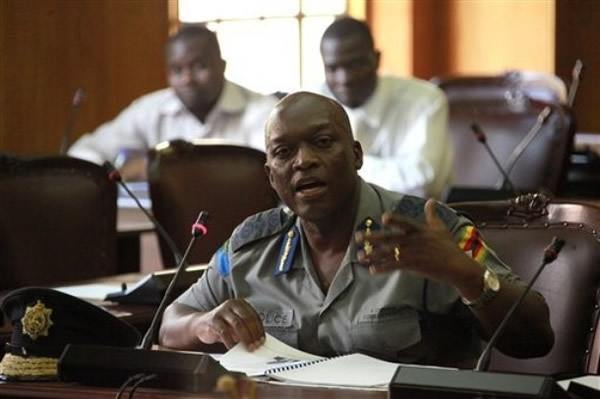
POLICE Commissioner-General Augustine Chihuri yesterday told parliament that the Organ on National Healing, and not the police, was responsible for resolving violence related to the 2008 presidential election run-off.
Chihuri refused to answer questions on the 2008 election violence when he appeared before the Home Affairs Portfolio Committee, which was probing organised violence rocking the country.
The police chief avoided answering questions on the presidential run-off poll saying the committee did not forewarn him to prepare for that line of questioning.
“I was not told (to prepare) for the June 27 violence. That is being handled by the Joint Monitoring and Implementation Committee (Jomic) and the Organ on National Healing (ONH),” said Chihuri.
He questioned the parliamentarians’ motive in asking him about that poll when they knew that it was being handled at a political level.
Jomic and ONH are institutions created by the Global Political Agreement (GPA) to help monitor the implementation of agreed reforms.
- Chamisa under fire over US$120K donation
- Mavhunga puts DeMbare into Chibuku quarterfinals
- Pension funds bet on Cabora Bassa oilfields
- Councils defy govt fire tender directive
Keep Reading
Chihuri admitted that organised political violence was the worst kind of violence in any society as it needed the least or no provocation at all to happen adding that the police required substantial funding from the state to curb it.
“Policing is not a cheap exercise. Police should be provided with enough funds and have proper toys of the trade to function effectively,” he said.
Police received US$200 000 dollars from treasury last month for their operations and Chihuri described this allocation as inadequate to implement policing activities.
He disputed claims of police not dealing decisively with torture camps set up in certain communities and the unfair treatment of victims of violence by the MDC-T.
These reports, Chihuri said, could not be substantiated and were generally made for political expediency as statistics from his offices showed that both Zanu PF and MDC-T were equally responsible for all forms of political violence recorded from the beginning of 2011.
He revealed that the police had so far handled 36 cases of political violence countrywide and arrested 121 suspects. Of these, Chihuri said 101 were MDC-T members and 20 from Zanu PF.
Among the MDC-T senior leaders arrested were Deputy Prime Minister Thokozani Khupe, Home Affairs minister Theresa Makone, Speaker of Parliament Lovemore Moyo, Youth deputy minister Tongai Matutu and MPs Douglas Mwonzora, Rodgers Tazviona and Paul Madzore.











